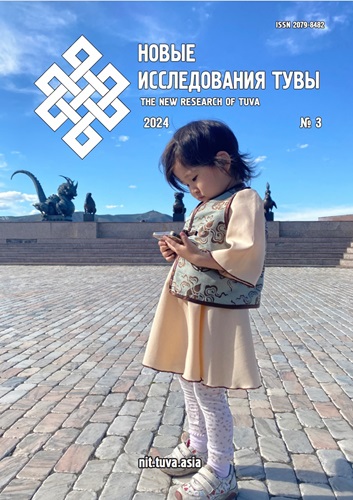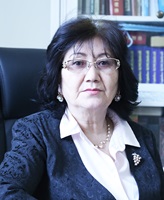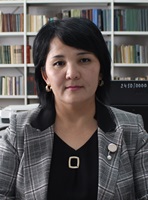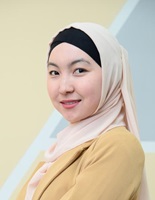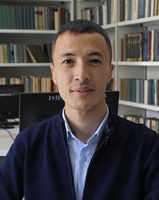The fourth generation of academic Kazakh grammar
DOI:
https://doi.org/10.25178/nit.2024.3.20Keywords:
academic grammar; morphology; syntax; Kazakh grammar; grammatical structure; English grammar; Tatar grammar; Tuvan grammar; Turkish grammar; Kazakh languageAbstract
The article discusses the issue of compiling large grammatical works, including academic grammars. In particular, answers are sought for such questions as the following: What is the scientific character (style) of compiling fundamental grammatical works? What should their scientific apparatus, their design and structure look like? What research methods should be used? What is their target audience? In order to achieve this purpose, we carried out a comparison of academic grammars originating in the Soviet Union and those fundamental, voluminous grammatical works compiled according to the European-American model. The experience of compiling grammatical editions in Turkic languages has also been taken into account. The ideas obtained as a result were used in compiling the next academic grammar of the Kazakh language. This article was written with the objective of sharing the experience and elaborating on the results of the comparison.
It has been found out that fundamental grammatical works have their own scientific character (this concerns the Soviet school): academic grammars are written on the normative and descriptive basis, i.e. scientific descriptions must be accompanied by a normative differentiation. The structure is directly linked to the levels of language which the editorial board have chosen as the object of study (lexis, phonetics, word building, morphology and syntax). There are consistency and moderation in designing grammatical works as well. Research material and examples are taken from literary samples. These principles are based on the fact that academic grammars are oriented to scientific and educational community. At the same time, as European and American fundamental grammars are compiled for the general scientific community, the aforementioned academic principles may not be followed.
Since fundamental grammatical works are not compiled very often (once in 20–30 years), such studies are not frequent either. The grammars created in the Soviet period have not been revised fully yet. It is specifically important to revise academic grammars, as they need to document and standardize the new knowledge in the field of language. The issue of revising the academic grammar of the Kazakh language has been brought into the spotlight, and in 2022, the new generation of the grammar was prepared. For this reason, the conclusions of the article and the experience obtained while developing the new generation of the “Kazakh Grammar” may become useful while compiling new fundamental grammatical works.
References
Allan, K. (1980) Nouns and countability. Language, vol. 56, no. 3, pp. 541–567.
Binnick, R. I. (1991) Time and the verb: A guide to tense and aspect. New York ; Oxford, Oxford University Press. xxiii, 554 p.
Chomsky, N. (1957) Syntactic structures. The Hague, Mouton. 117 p.
Comrie, B. (1976) Aspect: An introduction to the study of verbal aspect and related problems. Cambridge, Cambridge University Press. 142 p.
Comrie, B. (1985) Aspect: An introduction to the study of verbal aspect and related problems. Cambridge, Cambridge University Press. 142 p.
Leech, G. N. (1987) Meaning and the English verb. London, Routledge. 152 p. DOI: https://doi.org/10.4324/9781315835464
McCoard, R. W. (1978) The English perfect: Tense-choice and pragmatic inferences. North-Holland, North-Holland Publishing Company. 279 p.
Palmer, F. R. (1988) The English Verb. London, Routledge. 282 p. DOI: https://doi.org/10.4324/9781315841472
Reid, W. H. (1991) Verb and noun number in English: A functional explanation. London, Longman. 388 p.
Rogova, K. A. (2018) On the way to a new academic grammar. The World of the Russian Word, no. 2, pp. 5–12. (In Russ.). DOI: https://doi.org/10.24411/1811-1629-2018-12005
Shamina, L. A. (2019) The lexeme of “time” step and the issues of grammaticalization in the Tuvan language. The New Research of Tuva, no. 2, pp. 182–192. (In Russ.). DOI: https://doi.org/10.25178/nit.2019.2.16
Tobin, Y. (1993) Aspect in the English verb: Process and result in language. London, Longman. 398 p.
Valentinova, O. I., Rybakov, M. A. and Ekshembeeva, L. V. (2023) Determinant grammar of the Russian language as an academic grammar of a new type. Russian Studies, vol. 21, no. 1, pp. 228–241. (In Russ.). DOI: https://doi.org/10.22363/2618-8163-2023-21-2-228-241
Wickens, M. A. (1992) Grammatical number in English nouns. Amsterdam, Benjamins Publishing Company. xvi, 321 p. DOI: https://doi.org/10.1075/cilt.76
Published
How to Cite
Для цитирования:
Mamynova B. K., Slyambekov Q. B., Soltanbekova A. A., Imangazina M. A., Ramazanov T. B. The fourth generation of academic Kazakh grammar // Новые исследования Тувы. 2024. № 3. С. 326-340. DOI: https://doi.org/10.25178/nit.2024.3.20
Issue
Section

This work is licensed under a Creative Commons Attribution-NonCommercial 4.0 International License.

Author(s) license holder(s) grant rights for their work to the journal (grantee of a license) under the simple non-exclusive open license in accordance with Art. 1286.1 «Open license for a research work, work of literature or fine arts», Civil Code of the Russian Federation.
New Research of Tuva publishes articles under the Creative Commons Attribution-NonCommercial license (CC BY-NC).
Since it is an open license, author(s) reserve the right to upload the article to their institutional repository, submit it to another journal (if it allows republications), or republish it on their own website (in full, or in part).
However, several conditions apply here:
a) The republished version must always contain the name(s) and affiliation(s) of the author(s), the original title and the hyperlink to the original version on the New Research of Tuva website;
b) It must be in open access, free of charge, and no category of readers must be in any way whatsoever advantaged over general readership.
c) should the contribution be submitted elsewhere by its author(s) without substantial modification (30% or more of original text unchanged), the body of the article should contain a disclaimer that the original version was published in New Research of Tuva (with a link to the respective page)
The CC-BY-NC is a non-revocable license which applies worldwide and lasts for the duration of the work’s copyright.

